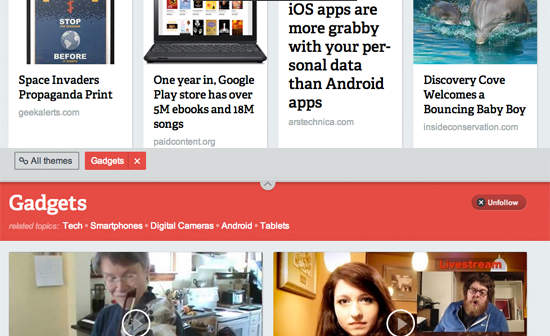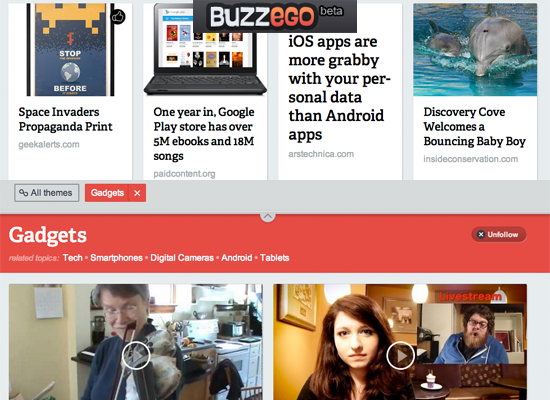The announcement by Google last week that it will be shutting down Google Reader spurred an outcry from many of its users. Â However, innovation in content aggregation is increasingly making Google Reader look pretty dated. Â As well as beautiful looking apps that let you create digital magazines out of your favourite sources and social news feeds, we’re seeing significant innovation in how technology can automate the process of finding the most relevant stories and posts from across the web.
While Google Reader is still very popular with power users that rely on it for their jobs, for the mainstream user it is difficult to set up and turns reading into a chore by rapidly filling up with a long list of unread stories.  Furthermore, like Flipboard it doesn’t learn from your reading behaviour – it will keep sending stories from feeds that you stop reading.

“We believe the future of content aggregation will be about two things – simplicity for the user and relevance of the stories,” comments Petr Volyak, cofounder at buzzego.  “Google Reader is fiddly to set up, it doesn’t learn from your reading habits and it doesn’t actually help you discover the most relevant stories – it simply tracks updates from selected sources or feeds.”
buzzego, which was launched by a Moscow-based team earlier this month, automatically identifies the stories that you’ll most want to read.  So rather than simply sending you all the new stories from selected sources, it automatically crawls that part of the internet (less than one per cent of the web actually) where the most interesting content is likely to be and then automatically categorises it (using natural language processing), ranks it (using social feedback) and matches it to users’ interests (which it deduces by asking each user to choose from a number of characters which all come pre-tuned with likely interests).  It then constantly refines your profile based on your reading and sharing behaviour – so that it stops sending stories on topics that aren’t of interest.
The end result is a highly personalised feed that is quick and easy to set up, provides the top rated and most readable content (not just news but fun stuff as well) and adapts to your changing interests.
Are you a Google Reader user? What alternatives are you using, leave a comment below.Â



